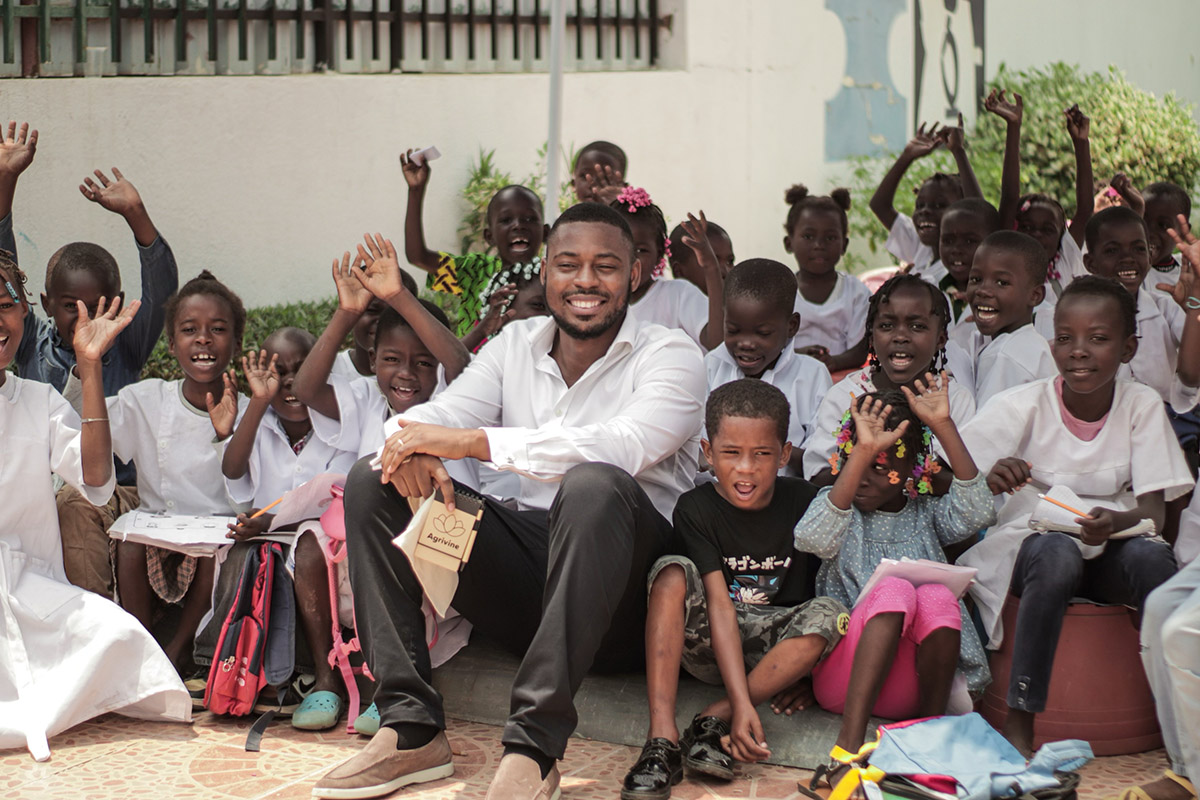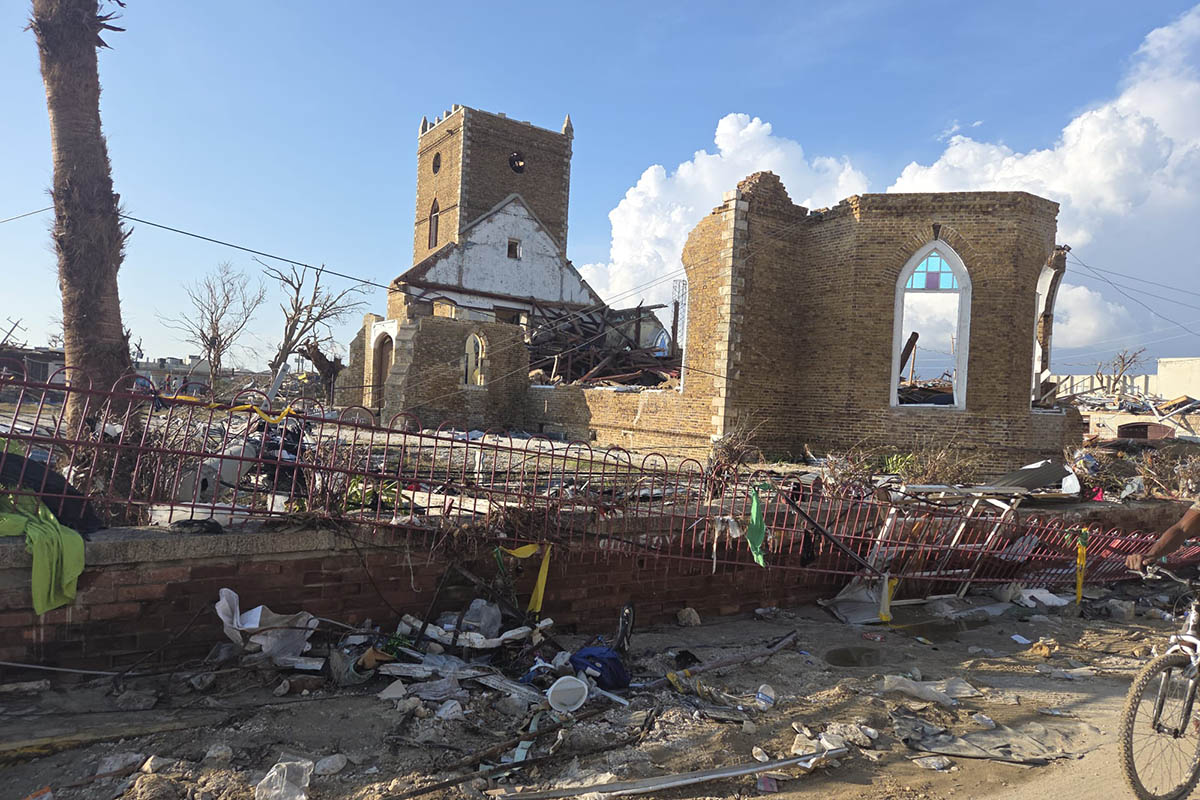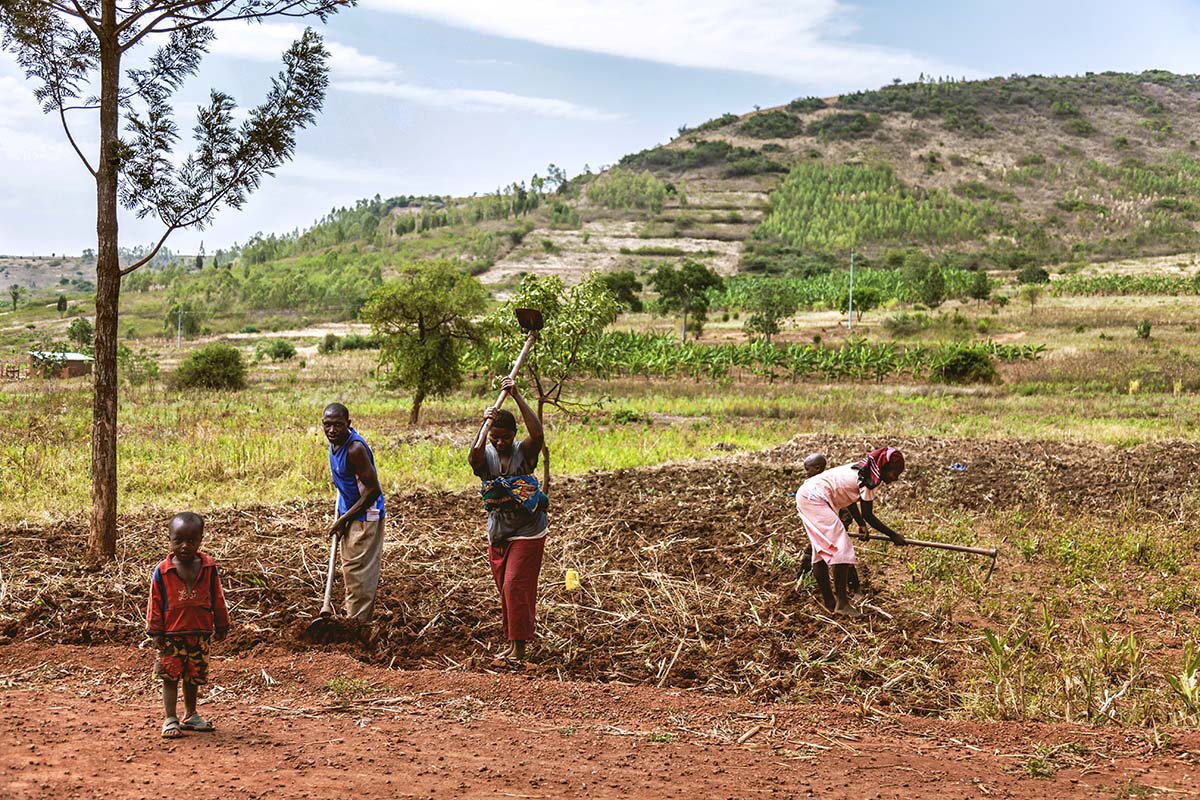A Year of Youth Spotlight Series – Joseph Adeyemi of Nigeria
June 14A short bio about yourself
I am Joseph Adeyemi, the founder of Agrivine, an enterprise dedicated to harnessing agriculture and food production as a catalyst for economic growth. At Agrivine, we empower African farming communities by providing them with the necessary skills, technology, and infrastructure to enhance productivity and sustainability.
Our pioneering initiative, solar-powered agro-processing facilities, is designed to mitigate post-harvest food loss caused by warm climates and logistical challenges. By sourcing directly from farmers, we not only reduce food wastage but also bolster food availability, increase farmer earnings, and stimulate economic growth. All while supporting our supplier farmers with the tools to be more productive.
Agrivine also collaborates with governments on key projects that leverage technology and curated initiatives to engage youth in agriculture, to drive social and economic growth.
Before founding Agrivine, my career in technology strategy at AWS saw me leading adoption projects across both private and public sector.

Tell us a little about your event/project (how it came about, the number of young people who benefited and the impact it had)
Project title: ‘Nourishing young Agripreneurs for a sustainable future’
The sustainable agriculture project was conceived to tap into the potential of the youth within the commonwealth. In the face of a growing global population and with climate change limiting agricultural outputs, sustainable food production is not only meaningful but also profitable.
Agrivine, in partnership with the commonwealth, orchestrated a three-day virtual symposium accessible to over 10,000 young individuals from the 56 member nations. The conference’s objective was to equip the youth with the necessary insights and tools to prosper in the agricultural sector. The roster of speakers boasted accomplished entrepreneurs, PhD scholars, pioneers in agri-tech, and representatives from the United Nations.
Post-conference, Agrivine released a detailed 120-page curriculum on sustainable agriculture to all participants, covering topics such as agricultural methodologies, technological advancements in farming, initiating agricultural enterprises, penetrating international markets, and supportive policies.
The conference was a resounding success, leading to at least five collaborative ventures in new agricultural enterprises, notably an IoT-enabled refrigerated transport service for farm produce.
The attendees expanded their professional networks, laying the groundwork for a vibrant ecosystem that will birth more businesses, initiatives, and research in agriculture. Notably, over 70% of the participants now have the conviction that they can achieve success in the agricultural sector, meaning we had achieved what we set out to do.

What has inspired you to work on this particular issue?
Growing up in Africa, I observed firsthand the pivotal role of agriculture in the region. Food served not only as sustenance but also as a source of income, with many individuals selling food items like rice, sorghum, beans, bananas, and corn on the streets and in markets.
Agrivine initially emerged as a commodity trading entity, dealing in staples such as wheat and soybean within the SADC region. It was during this period that I recognised the significant losses in potential food due to inefficiencies, and envisioned the prosperity that could be achieved with enhanced productivity in farming regions.
This realisation steered Agrivine’s mission towards a dedicated focus on sustainable food production, aiming to address these inefficiencies and foster development in the agricultural sector.
Why is this issue important to address in your community/country?
Agrivine is founded on the principle of increasing food production sustainably today without compromising future capabilities tomorrow. We are working to meet the United Nation’s projection that a 70% increase in food production is needed by 2050 to feed an estimated 10 billion global population.
While there is an obvious need to produce more food, climate change and soil degradation is causing constraints in farmer output. The effects of these environmental challenges are felt most where agriculture is a significant portion of income, approximately 42.5% of Africans are employed directly in agriculture – to combat climate effects, hunger, and poverty Africa needs to transition to sustainable food production.
Lastly, with vast underutilised arable land and youthful population Africa has the potential to be a breadbasket for the world.
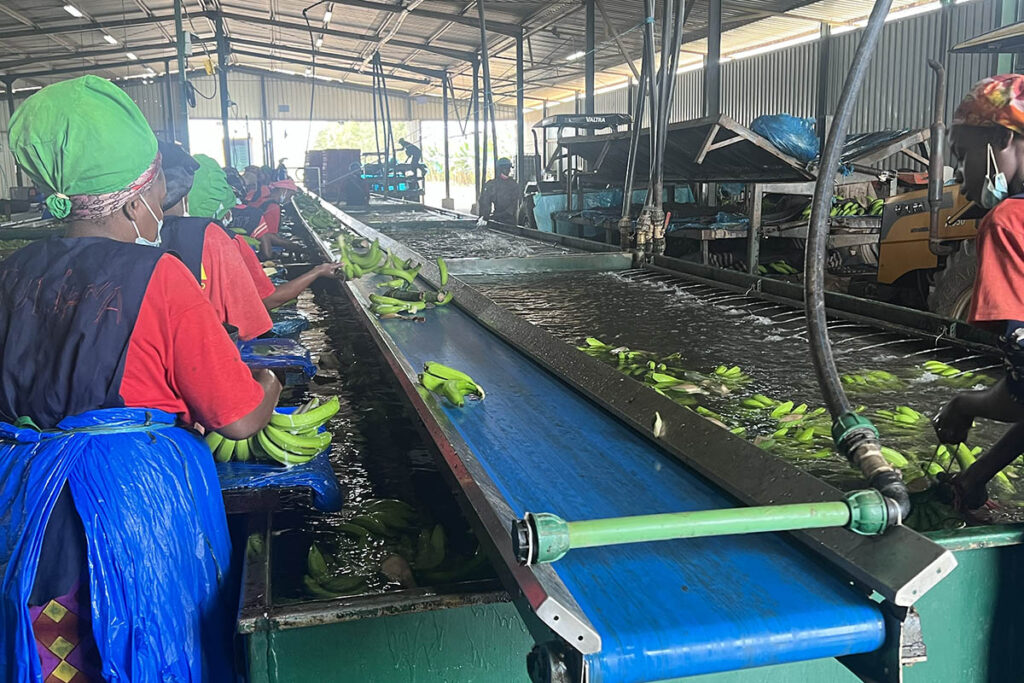
What was the most memorable moment during the event/project?
The most memorable outcome from the year of youth sustainable agriculture project was the newfound belief among participants in their potential to prosper within the agricultural sector.
Agrivine has always embraced the challenge of transforming the farmer’s image, as many young individuals often overlook agriculture when considering career options. Through our advocacy for the sector’s significance and its evolving landscape, we highlighted new possibilities for attendees and open their minds to a life within agriculture.
In one of the more personal sessions, participants found themselves receiving invaluable business advice from world-renowned experts, fostering an organic exchange of knowledge. This vibrant energy lays the groundwork for future events, initiatives, and opportunities in agriculture across the Commonwealth.
What is the dream for you and your project?
Agrivine’s vision is to be a global frontrunner in food production and distribution while concurrently prioritising development in agricultural regions. I hold the conviction that food production can be economically rewarding and transformative for communities. Our processing and packaging facilities address the critical issue of food waste and supply, with broader impacts such as job creation, energy generation, and Africa’s industrialisation serving community interests.
Our pilot facility is set to transform perishable tomatoes into 1,800kg of tomato paste weekly, enhancing the availability of tomato products locally and in neighbouring regions, starting with a three-day operation before expanding after six months. This operation is powered by a 75KW capacity from 60 solar panels.
Agrivine’s processing sites are designed to be modular, recognising that while food waste is a widespread issue in Africa, each region has different produce. By keeping operational systems and physical structures consistent, but adapting the processing machinery for local crops, we can scale these facilities across Africa with ease.
Our commercial operations lend credibility to our collaborations with governments on leveraging agriculture for national development.
What motivates you to keep advocating and challenging yourself?
My foremost aspiration in life is to give my best for myself, my family, humanity, and God. I’ve always aligned my life’s work with a cause greater than personal achievement, and in championing food security and community empowerment, I’ve found my calling.
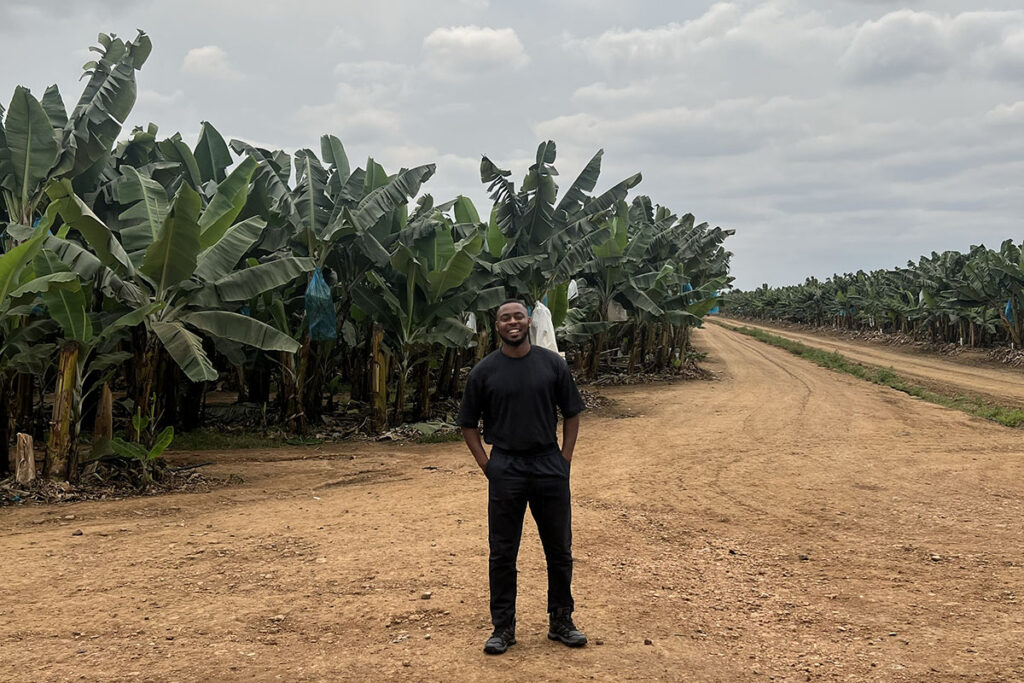
As Maslow’s hierarchy of needs suggests, food is a fundamental necessity, and without it, meaningful societal contribution is unlikely. The chance to harness the world’s untapped human and land resources, address major societal issues, and initiate this journey from my birth continent deeply resonant with my values.
Additionally, vision motivates me, the love and support from my family instilled in me the belief that I can accomplish great things. With this foundation, I would like to make a significant impact on as many lives as possible.
Tell us an unusual fact or piece of trivia about yourself.
As a child, my friends and I loved wrestling at the age of 9, leading me to craft a replica of the spinning WWE championship belt worn by John Cena. We’d compete for it during playful bouts in the playground. Additionally, I managed to achieve an A in Mandarin.
What is your favourite quote?
My favourite quote is from Marianne Williamson:
“Our deepest fear is not that we are inadequate. Our deepest fear is that we are powerful beyond measure. It is our light, not our darkness that most frightens us. We ask ourselves, ‘Who am I to be brilliant, gorgeous, talented, fabulous?’ Actually, who are you not to be? You are a child of God. Your playing small does not serve the world…”
Why?
This quote resonates with me because it speaks to the potential within each of us to achieve greatness. The quote challenges the self-doubt and limitations we often place on ourselves, encouraging us to embrace our talents and capabilities. It’s a reminder that by realising our full potential, we can make a significant impact on the world, and that playing small does not serve anyone.
What one youth issue would you like the Commonwealth Youth Programme to address in the coming years and why?
I propose that the Commonwealth Youth Programme commits to empowering the youth to tackle the world’s most pressing challenges. The potential and talent to address issues on both micro and macro levels exist; what young people need are opportunities.
Take food security, for instance, a global concern that also affects many Commonwealth nations locally. Agrivine believes that harnessing human capital through training, technology, and well-designed initiatives can channel the youth’s energy into producing food for successful careers and local consumption.
Agrivine has prepared a comprehensive report detailing our short-term, medium-term, and long-term initiatives that guide young individuals from a basic understanding of agriculture to managing profitable ventures aligned with national goals. This strategy is supported by an app that guides cohort members through training modules, mentorship matching, field visits, and venture initiation. For donors, the app provides real-time monitoring of project KPIs, ensuring transparency.
